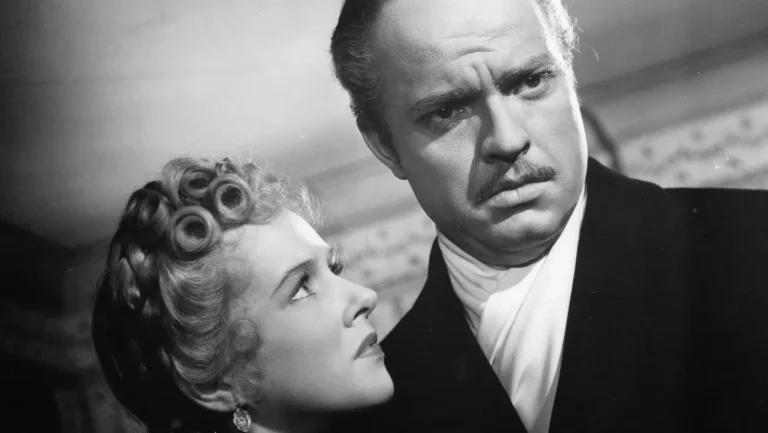25. Stray Dogs | Tsai Ming-Liang

In one of the long, static, silent scenes in Tsai Ming-Liang’s uncompromising art Stray Dogs (2013), the destitute protagonist (Lee Kang-sheng) stands to hold the billboard of an expensive real estate advertisement at a road junction during a violent storm. The alternately poignant and smothering imagery that would be ingrained in your memory forever mesmerizingly expresses the marginal financial status of individuals in urban spaces.
In another scene, he wakes up in the middle of the night and savagely starts eating the cabbage. The unstable emotions choking him inside-out would send the chills down your spine. Both the scenes lyrically convey marginalization and injustice, reeking of irony that clutches your heart and leaves you suffocating in horror. Well, I survived it, but something has changed inside.
24. Mysteries of Lisbon | Raúl Ruiz

The novelistic approach to the intertwined narratives in this staggering epic drama, further boosted by the immaculate production design and costumes, immensely rich diction, and beguiling cinematography clouded in dream-like ambiguity.
Adapted from the eponymous nineteenth-century Portuguese novel (by Camilo Castelo Branco), spanning over decades, spread across continents, studying generations, the nested stories that unravel the tantalizing aristocratic-secrets eventually interconnect the lives of the characters who have secrets, illicit affairs, hidden pasts and agendas. This is filmmaking on a rare and breathtaking scale. Its length is admittedly daunting, but you’ll find that once it gets its hooks in you, you won’t want it to end.
23. The Hunt | Thomas Vinterberg

A bewitchingly haunting drama about a man wrongly accused as a paedophile. The man in the question is Lucas, a high school teacher. Lucas is played intensely by Mads Mikkelsen with the right mixture of helplessness and vulnerability. Lucas is already suffering from a harsh divorce. Trying to put things together and make an easy reboot. But the accusation has its far-reaching implications.
The first repercussion is the ostracization from the society and group of friends in a close-knitted small-town. The accuser cannot be investigated to find the truth because she is just a five-year-old girl with a vivid imagination & temper issues. She also happens to be the daughter of Lucas’s best friend. It’s a nightmarish scenario that’s too frustrating to endure. Overall, The Hunt is a devastating, spine-chilling, and a near modern psychological horror masterpiece.
22. Toni Erdmann | Maren Ade

Toni Erdmann is a thorny but moving tale of a fragile relationship between an eccentric father and a workaholic daughter. The emotional void between their relationship for not having conversed heart to heart in a long time reflects in the father, Winfried’s (Peter Simonischek) desperation and longing. The daughter Ines’ (Sandra Hüller’s turn as a vulnerable yet strong working woman is incredible) excessive focus on work leaves her with no personal time. It’s a classic parent-children time crunch issue as the dad & daughter try to bond together as a family.
After the death of Winfried’s dog, he decides to reconnect with his daughter in a hope to gain some space in her personal life. He unexpectedly drops in on Ines, in her Bucharest home. He sees how miserable she has turned. Out of desperation, he creates an alter ego – Toni Erdmann and stalks her in office, meetings, bars and malls, practically everywhere. In all the madness, Ines begins to understand that her father might deserve some place in her life after all. The strength of Toni Erdmann lies in its emotionally nuanced writing that doesn’t succumb to genre tropes and emotional euphoria.
21. Carol | Todd Haynes
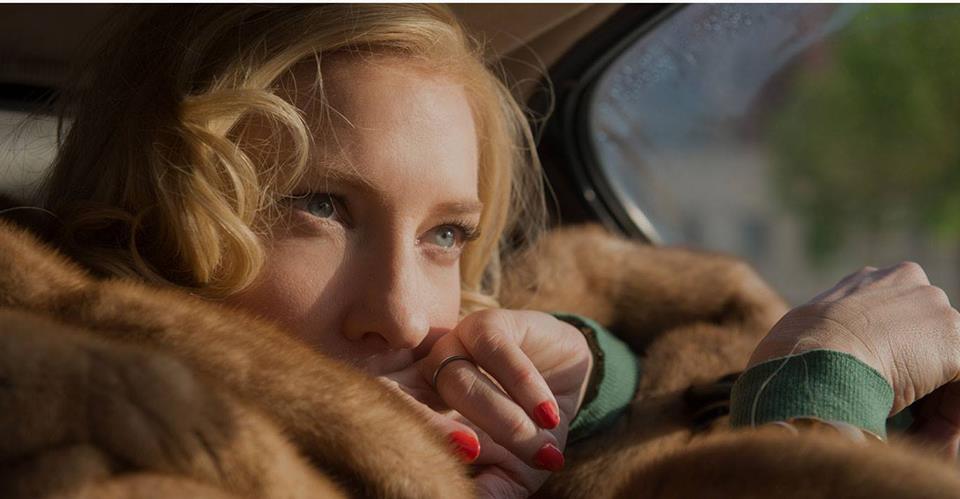
Adapted from Patricia Highsmith’s 1952 romance novel, The Price of Salt, Todd Haynes’ Carol was shot on 16mm (Arriflex 416) – by cinematographer Edward Lachmann – to impart the feeling of granularity to every frame which plays a role in achieving the look of the 1950s. In Carol, Haynes portrays a same-s*x love affair in an era when such things were beyond taboo and scandalous.
Wisely casting the eternally beautiful Cate Blanchett and the equally magnificent Rooney Mara, the actors perfectly bring together the longing of two solitude souls as the averted glances, unspoken words and intrepid gazes injects greater emotional power to the narrative. Moreover, Todd Haynes’ shimmering sets, the laughs and thoughtfulness between cigarette puffs, and a moment of the sensual physically intimate sequence are all staged with such meticulousness and in a charming way that you can’t stop yourselves falling in love with these despairing, agonized characters.
20. Phoenix | Christian Petzold

Phoenix is adapted from Hubert Monteilhet’s French detective novel Le Retour des cendres. Director Christian Petzold has changed the setting to Berlin, in the aftermath of World War II. He has also drastically changed the crux of the narrative and watered-down the subplots. Phoenix revolves around a Jazz singer named Nelly Lenz, who is the sole survivor of impounding among her well-to-do family. She is brought to the hospital for facial reconstruction surgery by Lene (Nina Kunzendorf) who promises her a new identity.
Phoenix is not a plot-driven film but it’s driven by the estranged characters’ emotions, enmeshed by deception and their yearning for true love. It is very intriguing and has a subtle sense of suspense on how the characters deal with their guilt and reach out for their redemption. “Phoenix” ends with a haunting performance of “Speak Low,” the Kurt Weill/Ogden Nash by Nelly that will chill us to the bone.
Read the complete review of Phoenix.
19. Tangerines | Zaza Urushadze

Some may throw an argument that ‘Tangerines’ is contrived; too simplistic and the anti-war narrative is occasionally subtle. But seldom we see such a tragic, anti-war sentiment film that transcends the inherent dramatics of the plot without moralising and touches your soul in a way that reshapes you for good. It’s in the austere aesthetics the universality of the narrative’s pathos lies.
On the outset, it’s a conventional anti-war film although there aren’t any elaborate set-pieces hinting at the showdown between Georgian government forces & Abkhaz separatist forces which happened in 1992 in Abkhazia. Nevertheless, the movie acutely portrays the absurdity of the war that’s brimming with humanity and affixed with a pinch of humour, even while zeroing-in on the inevitable truth about life in the war zone, i.e., the imminent death.
18. Incendies | Denis Villeneuve

A quest that’s part horrific and part incendiary, Denis Villeneuve’s Incendies tells the tale of two twin-siblings unravelling the mysterious identity of their father and step-brother, right after the death of their mother, Nawal Marwan (Lubna Azabal) in the suffocating & grisly reality of war in the Middle-east. The plot also moves back in time to reveal the ghastly destiny of the Nawal and the unimaginable series of ordeals that she had to go through while chasing the shadows of lost love and child.
Related to Best Movies of the 2010s: Every Denis Villeneuve Film Ranked
The storm of horrendous revelations re-writing the fate of twins Jeanne and Simon Marwan (Mélissa Désormeaux-Poulin and Maxim Gaudette) in a way would shockingly surprise you which you won’t see coming, and once you witness the disquieting twist, you would shudder in pain & horror.
17. The Rider | Chloé Zhao

The Rider is an elegiac coming of age drama. It’s the story of a rodeo rider putting pieces together from the wreckage of an American dream. The film blends the real-life people and their real experiences with a fictional story, thus blurring the line between fiction & documentary. It delves deeper into the consciousness of humanistic values and creates an intimate story; Director Chloé Zhao has a sharp instinct to gauge an impulse.
Related to Best Movies of the 2010s: Nomadland: A Faultless Sublime Epic That May Change Your Life
She has complete control over the complex blend of human emotions that defines an individual’s relationship with himself, animals and society. It captures the American dream & masculinity with utmost honesty that is rare to find in the American cinema.
16. Call Me by Your Name | Luca Guadagnino

Luca Guadagnino’s much raved, tragic-romantic drama ‘Call me by your Name’, set in the Northern part of Italy, captures the swirl of emotions of the first love and the first heartbreak with such intimacy that you feel you are living the character. Brimming with overwhelming sensuality and s*xual tension between Elio (Timothée Chalamet) and Oliver (Armie Hammer), the coming-of-age summer romance treats the characters with compassion & empathy that is rare to find in films nowadays.
15. Like Father, Like Son | Hirokazu Kore-eda
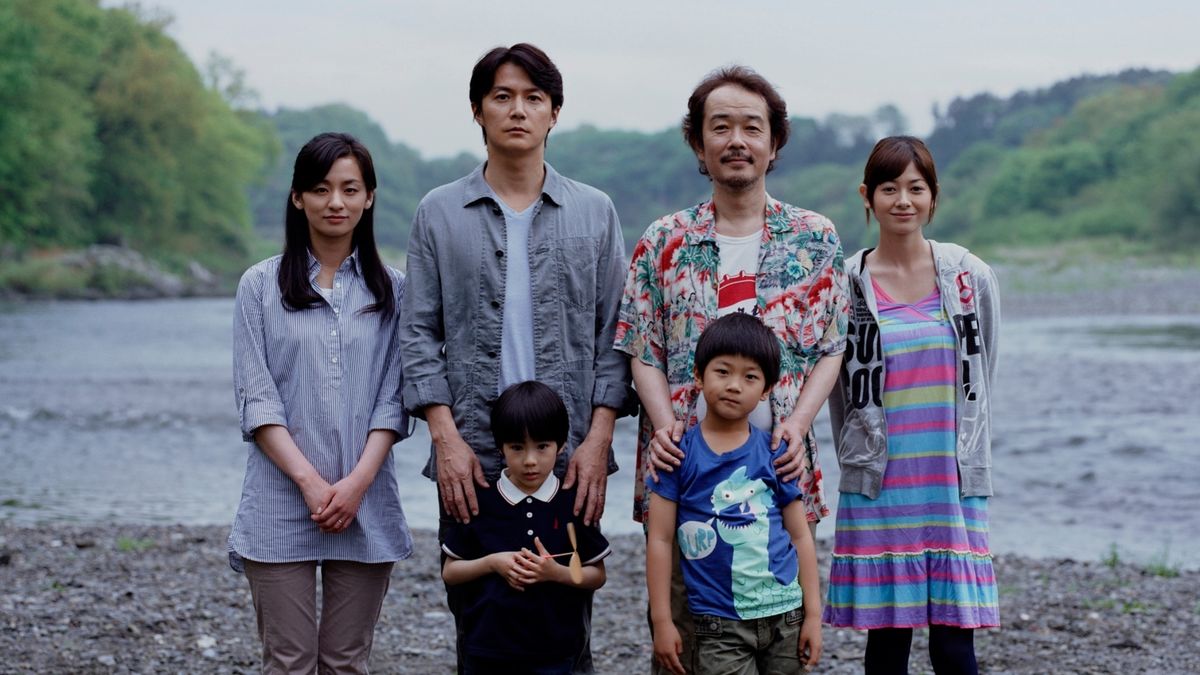
Imagine you learn that your child is not yours. He/she is probably brought up somewhere else under different conditions. The plot of Hirokazu Kore-eda’s ‘Like Father Like Son’ is a nightmare for any parents to be in that situation. Kore-eda carries an incisive examination of the very fabric of a parent-child relationship and the conundrum surrounding what makes a family, which he also later explored in Palme D’Or winning Shoplifters.
He layers the deceptively simple yet intricately written drama with a class disparity issue. What makes it even more gut-wrenching to sit through is the emotional repression the characters go through, especially the two kids, and the lack of any consent from them while deciding on their future. The narrative is restrained and visceral. It curbs the melodrama for more grounded, organic and honest empathy.
14. Once Upon A Time In Anatolia | Nuri Bilge Ceylan

Nuri Bilge Ceylan has the rare quality of a profound understanding of the human psyche during idle mind phase. Once Upon a Time in Anatolia is an exhaustive exercise in it. It’s a gorgeously shot crime drama with densely layered characters that grow effortlessly & organically with time. As much as Ceylan’s diligent screenplay & painstakingly beautiful characterization of each character are worth applauding, credit also goes to cinematographer Gokhan Tiryaki. Mr Tiryaki moves the camera with such elegance that it captures the eerie thrills and the haunting beauty in the right amount to maintain dramatic tension throughout.
Read the complete review of Once Upon A Time in Anatolia.
13. An Elephant Sitting Still | Hu Bo

‘An Elephant Sitting Still’ is a meditation on nihilism. An allegory of fatalism. It’s a tale of macabre spiritual crisis. Souls breathing in a wasteland, scarred by despondency for life, are lulled by hopelessness. Burning with rage for the pain inflicted on them, they seek salvation in the myth. The myth is believed with such stubbornness that it becomes a delusional reality. Furthermore, a symbol of hope and change. As the legend goes, an elephant sits in a zoo and refuses to eat or move as if contemplating the purpose of its existence. In a way, it seems to echo the characters’ alienated existence.
Read the complete review of An Elephant Sitting Still.
12. Kaili Blues | Bi Gan

A doctor, a dreamer and a poet searches for his missing nephew in Bi Gan’s masterpiece ‘Kaili Blues’. The self-effacing mastery of camera movement is on display, especially in the 40-minute shot that exhibits the vastness and immensity of the characters’ world in every frame and dissolves the emotional arc of characters to simply mirror their fate & destiny. As the journey of a man unravels, and his life helically opens the pandora filled with memories, without him consciously realizing it, we witness the transcendence of sublime reality.
11. El Club | Pablo Larrain

Pablo Larrain rose to fame with the historical drama ‘No’, starring Gael Garcia Bernal, and then he had made this dreary, quintessentially scathing film ‘The Club. It functions as a complex psychological drama which vicariously creeps inside the psyche of priests to ultimately strip down the putridness of religious institution’s authoritarianism. The Club is a bold and deeply perceptive film with a strong political undertone, cognizing the egregious flaws of the institution, and blunt enough to showcase the sacrilegious souls disguised as the figureheads of religious authority.
Larrain, who co-wrote with Guillermo Calderon and Daniel Villalobos, depicts the adverse impact of pseudo ideologies ruining several lives; importantly, it pitches what religion and institutional authorities do to an individual on either side of the fence. It shows the helplessness of an individual to accept himself the way he is or to accept his fate as a consequence of his doings or him being fooled. One of the most distressing movies of the decade.
Read the complete review of the El Club.
10. Tabu | Miguel Gomes

Writer-director Miguel Gomes pens an elegiac but intense two-part tale exploring the realization of true love, losing it and then dwelling in the memory of it. Cut into two halves by 50 years and replete with bittersweet memories of eternal love, the quasi-silent movie bewitches us with its aesthetics.
Unperturbed, hazy dreamy sequences are woven together in a fervid and intense love story between Aurora (Ana Moreira) and adventurer Ventura (Carloto Cotta) that blooms in a dispassionate hill. Similar to poetry, the story of simple romance transcends the art itself in inexplicable ways.
9. Poetry | Lee Chang-dong
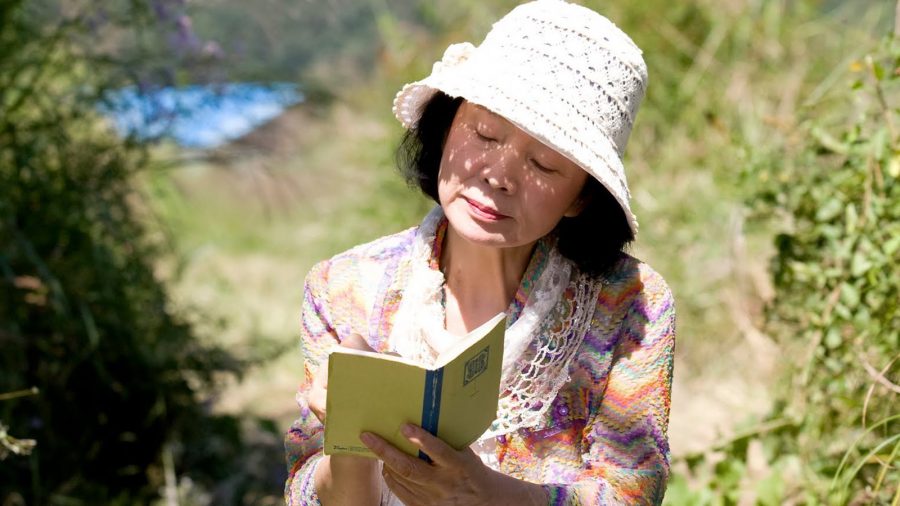
Lee Chang-dong is undoubtedly the best contemporary writer/director working today in Korean cinema. Despite the wafer-thin plot-lines that can be reduced to one sentence, the complex and layered drama he moulds would require multiple viewing to comprehend completely. “Poetry” stands as a testament to this approach of film-making. Contemplating the guilt, grief, and learning the ways to channel the dark emotions, while facing the existential crisis forms the underlying theme of Lee’s melancholic “Poetry.” This is Lee’s most accessible work, despite the multitude of emotional and psychological layers.
Related to Best Movies of the 2010s: Every Lee Chang-dong ranked
Poetry holds labyrinth of emotions in its subtext. The emotional depth and psychological complexity Lee’s film carries poses a quandary in the most artful manner possible. A sixty-six-year-old Mija (Yun Jung-hee), a part-time caretaker, living in a modest house with her grandson, learns about the onset of Alzheimer’s disease. There’s an irony to her tragic news when she joins the poetry learning community. A wistful desire to learn a new medium of expressing herself, while she is gradually descending into the abyss of unconscious forgetfulness of even the language she knows well.
8. The Tree of Life | Terrence Malick

Elegiac, transcendental and often meditative, The Tree of Life is a monumental piece of work that captures the essence of human experience from life to death, and yet it’s also decidedly intimate. It’s profoundly liberating to see the unfolding of life, but also deeply scary to contemplate what meaning it carries in the grander, infinite scheme of the cosmos.
Malick’s magisterial work is also about a quest to regain meaning seen through the wandering eyes of Jack (played by Sean Penn as an adult), as he reflects on his childhood, growing up in Texas with his stern and authoritarian father (played by Brad Pitt) and softspoken mother (Jessica Chastain). Emmanuel Lubezki’s life evoking camerawork travels into the depths of the human soul and nature to capture indelible images that live and breathes.
7. The Wild Pear Tree | Nuri Bilge Ceylan

“The Wild Pear Tree” is a rich, dense and layered character study of a young man. His internal turmoil is often manifested in the socio-political contradiction and the perennial east-west conflict in Turkey. Nuri Ceylan captures the languid, ruminative quality of a Chekhov story and a pre-eminent artist like the Nobel laureate and fellow countryman, Orhan Pamuk.
The title of the film indicates the collection of short stories written by the lead protagonist, a young educated but unemployed man named Sinan. He mixes fiction with real-life experiences of growing up in a small town that he doesn’t relate to. Nuri Ceylan patiently sketches the journey of a restless and stubborn Sinan, desperately trying to get his manuscript published in his home town. While also dealing with his father’s debt that brought the financial crisis. Furthermore, he engages in debate with everyone he meets along during his stay.
Read the complete review of The Wild Pear Tree.
6. The Turin Horse | Béla Tarr, Ágnes Hranitzky

In early 1889, Friedrich Nietzsche has allegedly walked out of his home in Turin, Italy, and witnessed a carriage driver brutally lashing his stubborn horse. He stopped the savagery by throwing his arms around the horse and sobbing, and in the days that followed, legend has it, Nietzsche lost what remained of his sanity.
Bela Tarr wondered about that horse and the carriage driver which led to the making of Turn Horse, a grimly deterministic drama with an unquestionable sense for visual poetics. Set during a punishing storm, the restlessness creeps in every frame of this artfully minimalist and stubbornly slow drama that focuses on the humdrum of existence.
5. Leviathan | Andrey Zvyagintsev

Leviathan is a monstrous, whale-like creature described in ‘The Book of Job’ which supposedly can’t be controlled by humans. It symbolizes the presence of anti-GOD (evil) forces, where the dominance of human beings is not possible and that’s pretty much what metaphorically Russian director Andrey Zvyagintsev’s Leviathan zeroes-in on. Leviathan which is touted as a scathing political satire on the Russian government, is more profound than what it seems. It holds the universal truth about corruption, the suffering of the common man in the hands of affluent and the powerful. It shows us a world where people are perpetually fighting for their rights or even to get a bit of self-respect and dignity.
Leviathan is a multilayered drama that works as a psychological thriller, political satire, a tragedy of Shakespearean magnitude, and a black comedy. It is bolstered by terrific central performances and a magnificent screenplay which is novelistic. Thematically rich, compelling and naturally acted, it begs viewers to consider living in a world where the rules don’t apply to those with power, and where God is either dead or just a tool to hoodwink people.
Read the complete review of Leviathan.
4. The Master | Paul Thomas Anderson

Considered as one of the greatest contemporary American Film-makers who, arguably, has never made a bad film, Paul Thomas Anderson brought in the three of the most talented actors – Joaquin Phoenix, Philip Seymour Hoffman and Amy Adams in a Post War drama about a Navy veteran struggling to adjust to a post-war society, and ultimately finding a sense of belonging in a cult named ‘The Cause.
Paul Thomas Anderson’s ‘The Master’ is an uncomfortable experience that vividly portrays the ambiguity of a troubled and tormented veteran navigating through meaninglessness of life and religious dogmas nurturing in the immoral society. Brimming with the performance of a lifetime from all three lead-actors and a disquieting score from Jonny Greenwood, Anderson’s meticulously crafted film is without any flab or flaw but just keeps digging through the darkness at the heart of it.
3. Amour | Michael Haneke

When an auteur like Michael Haneke, who has a penchant for reflecting the unspoken brutality and senseless violence in our world, makes a romantic drama, rest assured it won’t be an easy watch. Amour (Plame d’Or winner) opens with the stench of putrefaction that makes it clear what fate holds for Anne (Emmanuelle Riva) and George Laurent (Jean-Louis Trintignant), octagenarian musician-couples. Haneke takes us through the grim, sometimes infernal, and disturbing days of George nursing his debile, half-paralysed wife Anne.
The emotional extremity is on display here, and Emmanuelle Riva and Trintignant’s effortless & delicate performances organically pull us into the scenario. They look like they have been in love and shared their lives for years. The trivial scene of them travelling back home from the musical performance, both exchanging smiles is enough to deeply feel it. That’s what makes Amour so believable, cathartic and stark, especially when a perilous circumstance encircles them.
2. A Separation | Asghar Farhadi

Asghar Farhadi’s drama ‘A Separation’ is a heartwrenching depiction of an Iranian family caught between the emotions and socio-political law that has no place for human emotions. A devoted son doesn’t want to leave his father, suffering from Alzheimer’s disease, but his wife wants to move abroad to provide a better future for their teen daughter which they all agreed upon. Both of them are right. Nevertheless, when emotion takes over a person, it becomes difficult to rationalise a decision without accounting for the feelings.
Related to Best Movies of the 2010s: Every Asghar Farhadi Film Ranked
Unfolding like an edge-of-the-seat thriller, Asghar Farhadi’s drama is a murkier moral depiction of an Iranian family caught under a rigid socio-political environment. It profoundly captures the nuances of human frailty when people succumb to their feelings.
1. The Great Beauty | Paolo Sorrentino

Paolo Sorrentino’s aesthetically exquisite ‘The Great Beauty’ is a horror drama dealing with an existential question. It could plunge anyone into a state of desolation, compelling to introspect whether the dream we chased all along was merely an exercise to instil coherence and purpose of sorts to our life. Have we squandered our days in ephemeral indulgences? It’s a great mystery that could strike any one of us anytime in life as it did to Jep Gambardella (Toni Servillo) on his 65th birthday. Jep is an insightful observer of humanity’s flaws. He is too attuned to grasp the flashes of beauty in life, although it’s a different matter the life he has chosen to live.
Related to the Best Movies of 2010s: The 50 Best Movies of 2016
Paolo Sorrentino strips down the beauty of Rome to show superficiality and hollowness of the art & artists through torrents of alluring visuals. Though ‘The Great Beauty’ uses Rome as a stage to showcase the shallow lives of urbane & elite class people, beneath its opulent surface the film acutely addresses moral chaos and disorder, spiritual and emotional emptiness and existential crisis.



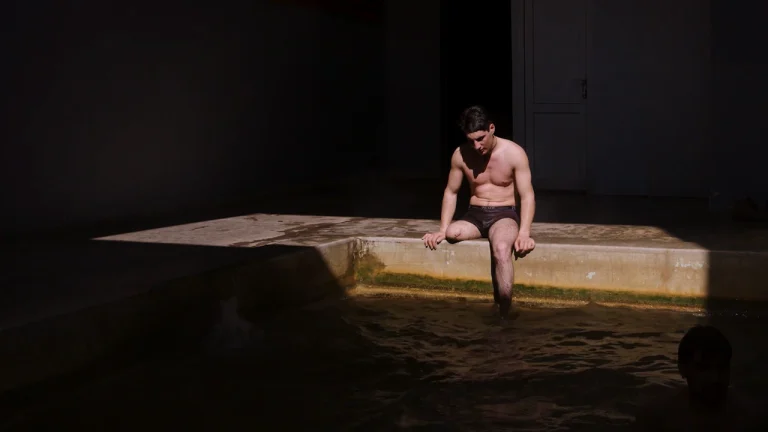
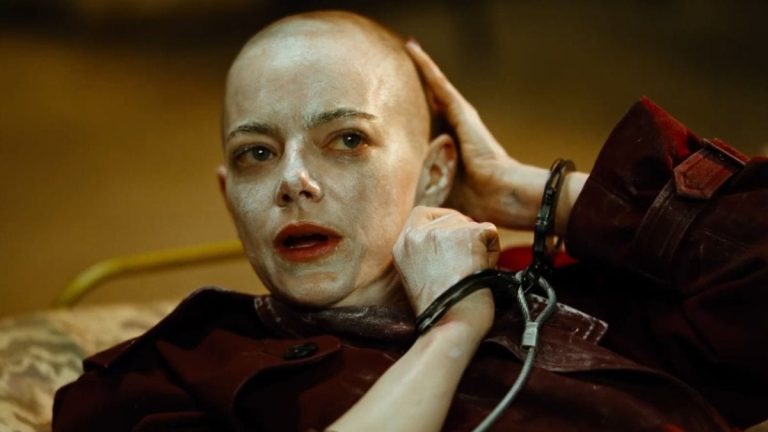
![Stranger Than Paradise [1984] – A Charmingly Low-Key Classic of American Indie Cinema](https://www.highonfilms.com/wp-content/uploads/2019/09/Stranger-Than-Paradise-1984-768x512.jpg)
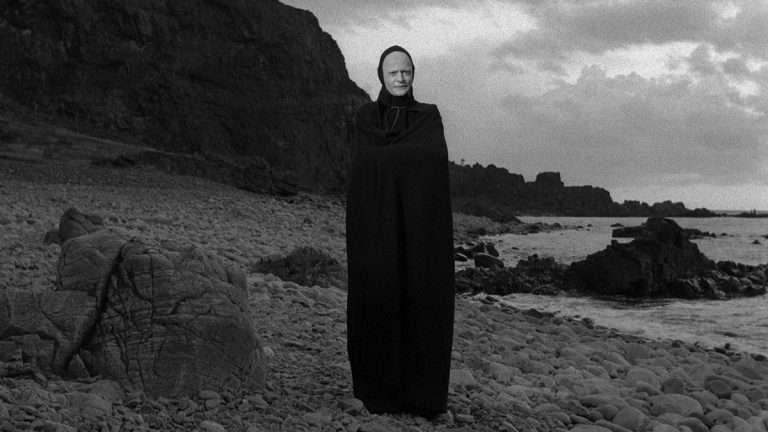
![The Tragedy Of Macbeth [2021] Review – Joel Coen’s Retelling Of The Shakespeare Play Is A Classic In Its Own Right](https://www.highonfilms.com/wp-content/uploads/2021/12/The-Tragedy-Of-Macbeth-768x384.jpg)
